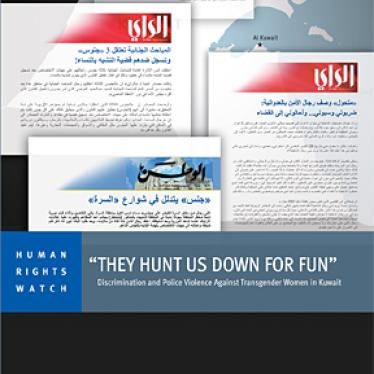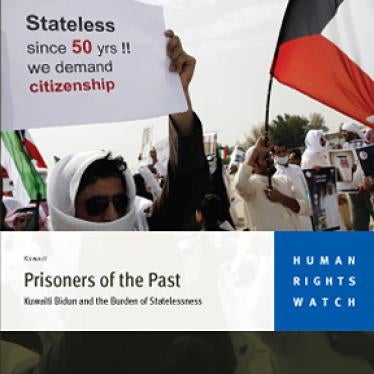Kuwait’s UPR took place against the backdrop of a serious decline in its free speech record, with authorities cracking down on political commentary and peaceful dissent, prosecuting government critics, stripping political opponents of their Kuwait nationality, expanding internet surveillance, and forcing the dissolution of an anti-corruption organization. Kuwait accepted recommendations to guarantee freedom of expression and to review legislations to protect human rights defenders, journalists and bloggers. But the reality on the ground shows a totally different picture.
Since 2011, Kuwait has seen continued prosecutions by the authorities of bloggers, activists, political opposition figures, and journalists for statements critical of the government made on twitter and other media platforms using charges such as harming another person’s honor; insulting the emir, other public figures, the judiciary or religion; and harming state security and inciting the government’s overthrow.
Over the last year, authorities have also continued to criminally prosecute individuals for comments deemed offensive to or critical of leaders or policies of other Gulf states, accusing individuals of harming Kuwait’s relations with those states. In 2015, the authorities have prosecuted at least six people for twitter posts critical of Saudi Arabia.
On June 16, Kuwait’s national assembly adopted a new cybercrime law that will further criminalize political speech on the internet. Its articles 6 and 7 apply existing criminal provisions that prohibit insulting the emir and governmental institutions to statements disseminated over the internet.
On May 7, the Ministry of Social Affairs issued a decree that dissolved the board of the Kuwait chapter of Transparency International, the international anti-corruption watchdog, and replaced them with governmental appointees after members of Kuwait’s national assembly accused the organization of pursuing a political agenda and exaggerating the level of corruption in Kuwait.
Last year, the authorities stripped 33 Kuwaitis of their nationality, including three who appeared to have been targeted because they represented opposition voices. Kuwait’s acceptance of a recommendation to stop revoking citizenships is a positive step, but should be followed by concrete actions.
We are also disappointed to see that Kuwait has made no significant progress in the last year on addressing the nationality claims of at least 105,000 stateless residents in Kuwait, known as the Bidun. Several recommendations in this regard were regrettably ignored by the Government of Kuwait.
Human Rights Watch regrets that Kuwait missed the opportunity provided by the UPR to commit to address the full range of valid concerns about its rights record raised by states during the review. We call on the government to immediately put an end to its ongoing crack down on free speech and to engage in a genuine effort to undertake much needed reforms to guarantee the rights of the Bidun population.








